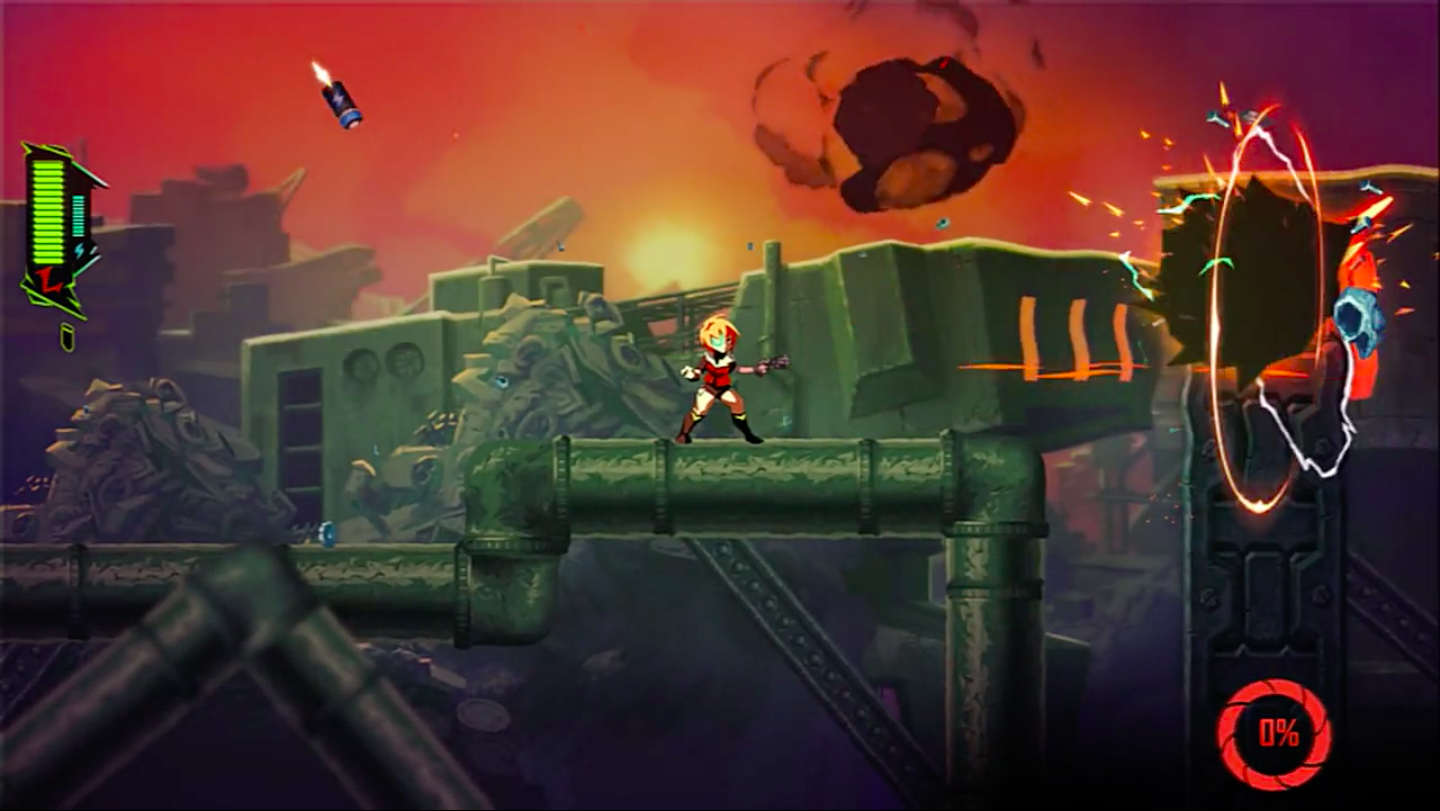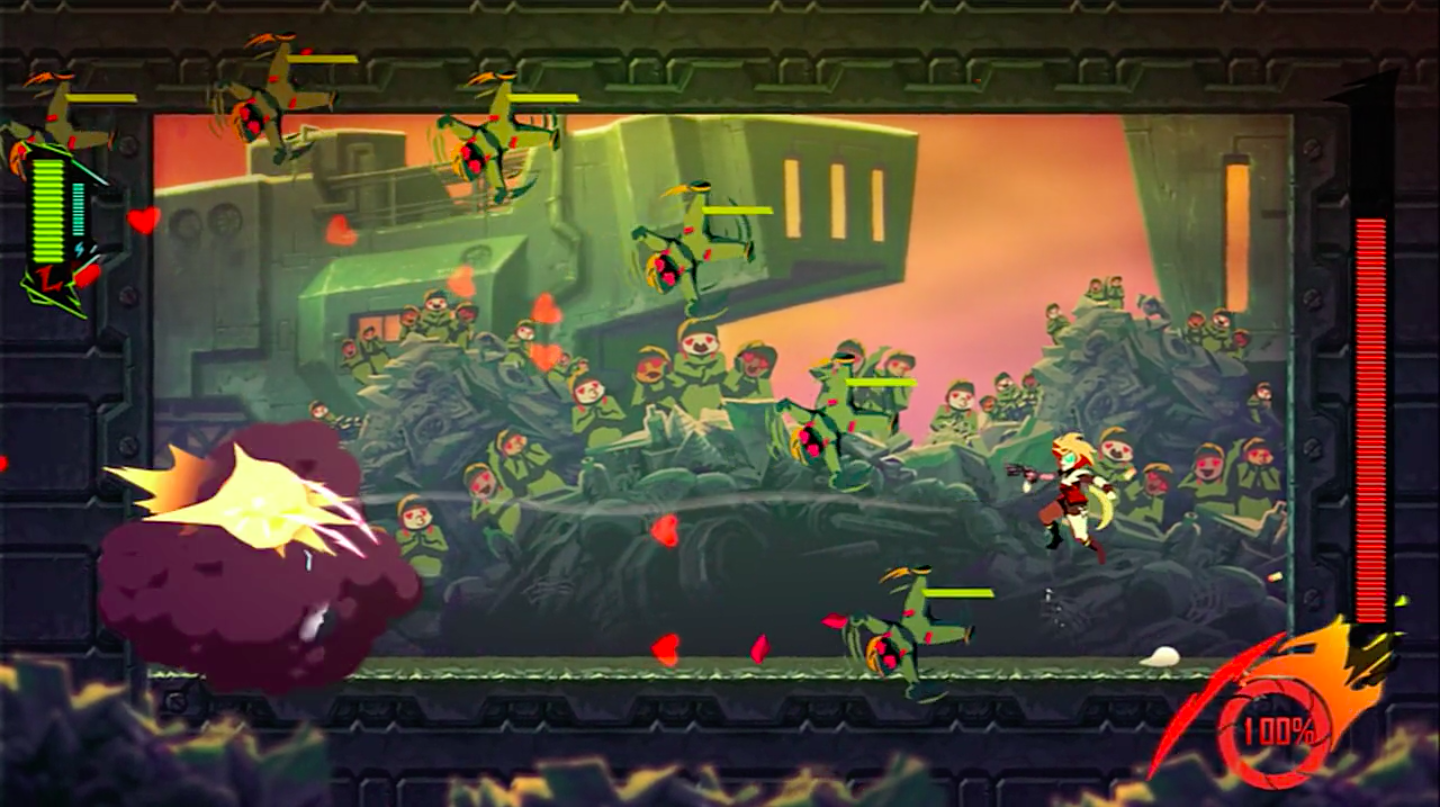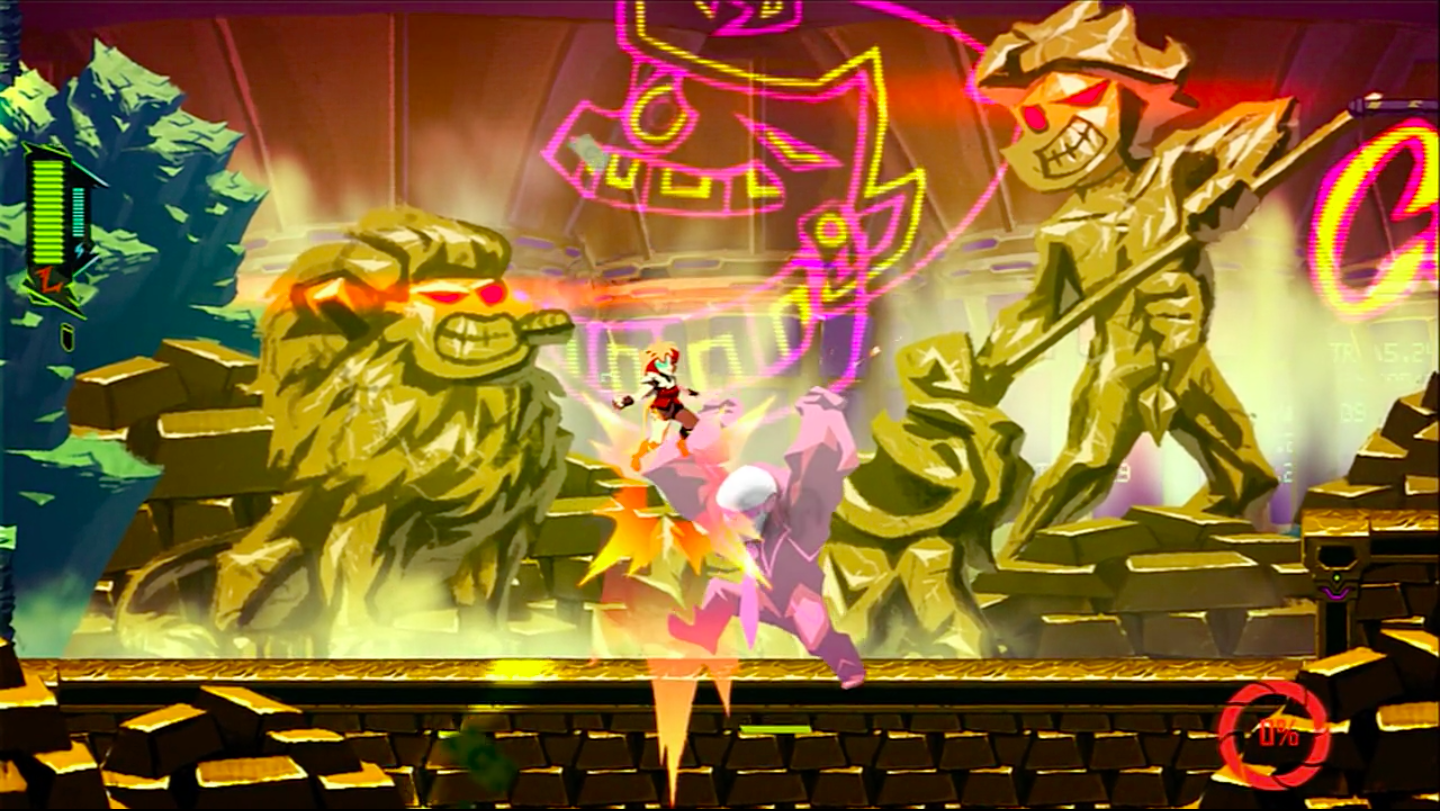GIGABUSTER gives you control over a colourful array of hi-tech weapons, like a baseball bat and some fire! This is the only thing standing in the way of a large conglomerate replacing the world’s government with AI. You play as Lou, the inventor of said AI. A series of corporate mergers has left Lou without an influence over what happens to his creation, the head of the new owner corporation of this AI is about gain approval to give control of the city over to your broken and kind of buggy AI. Not good news. Probably the second worst corporate merger.
You’re the only thing holding 9 companies back from establishing a complete monopoly on happiness. You have to fight them, destroy their possibilities of merging and gaining control over the AI but murdering everyone involved. GIGABUSTER IS A 2D side-scrolling platformer, with a focus on combat and keeping the action flowing. It’s seeking a modest amount of crowdfunding.

GIGABUSTER is a unique blend of platforming and action. It has been directly inspired by Mega Man Zero and Mega Man X. The platforming elements are also quite reminiscent of Owlboy. The whole thing plays a lot faster and looser. The story is a lot heavier than you’d expect from an indie-platformer. The Kickstarter campaign has a surprisingly in-depth lore for this sort of plot. It should be something else to make the game stand out. The title’s satirical take on business monopolies can make slashing through these corrupt businessmen even more satisfying. The game features a colourful pixel art style. While the look is pleasingly retro it also throws in some cartoony Saturday-Morning vibes.
Jump ‘N’ Kill
Platforming in GIGABUSTER gives you a range of options. Along with the traditional jumping, you’ve also got wall jumps and dash-wall jumps to figure out. Lou wields a grappling hook too, giving you the option of using this to further speed up your traversal of the worlds by grappling to ceilings and walls. It is action orientated platforming, emphasising speed and fluidity over precision. Your platforming is kept interesting, even if the levels don’t seem to be specifically designed to make it too challenging.

Dashing from screen to screen is a joy. These loose platformers are often a breath of fresh affair in the tidal-wave of intricate platformers and Metroidvanias. The action side of GIGABUSTER gives you control over a variety of weapons, including special moves. You can perform these using combinations of moves or sometimes specific buttons. There are plenty of options to fight your way through the game.
GIGABUSTER’s world is made up of 9 different companies. You have to take down every last one of them to save the world. These come in packages of three. You can tackle each group in any order. Who cares which company you destroy first? As long as you finish the job. This gives a bit of freedom, but with grouping each of the companies into groups of three, it should maintain that important sense of progression.
The GIGABUSTER Kickstarter
GIGABUSTERis aiming to release on Windows, Mac, and Linux. A Switch port is one of the project’s stretch goals. However, it’s likely that this will depend on the success of the PC release. The game is only seeking $20,000, but the Switch port’s goal is $50,000. It’s unlikely that it’ll get that far. The money raised is going to pay for music and sound effects. The actual budget of the game is of course considerably larger. GIGABUSTER’steam is finishing the title with savings and using the Kickstarter to pay for smaller elements. It’s a method of funding an indie title that is considerably safer than expecting a meagre amount to cover all development.

A demo of GIGABUSTERS is currently available for anyone interested in backing. The game is in a fairly decent state for this stage in development. It looks likely to hit its release date of early 2019. Is it worthwhile to fund a game’s sound effects alone? Well, games are expensive. Kickstarter projects that underplay the actual cost of game production to keep their numbers low cause a problem. They devalue the perception of the cost of a game.
Kickstarters that pretend that their goal can cover an entire game are either setting themselves up for failure or hiding the true cost of the game. This sort of responsible use of crowd-funding is a good sign for the team’s ability to follow up on their promises. The campaign contains a sizeable chunk of explanation of possible risks. It also promises twice-monthly updates. Keeping to this schedule will go a long way for transparency with the project. GIGABUSTER looks like a Kickstarter title that is using the platform responsibly. This should give you some confidence if you’re interested in backing.



